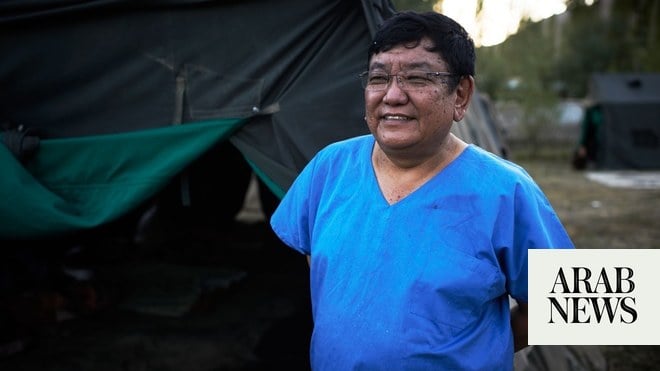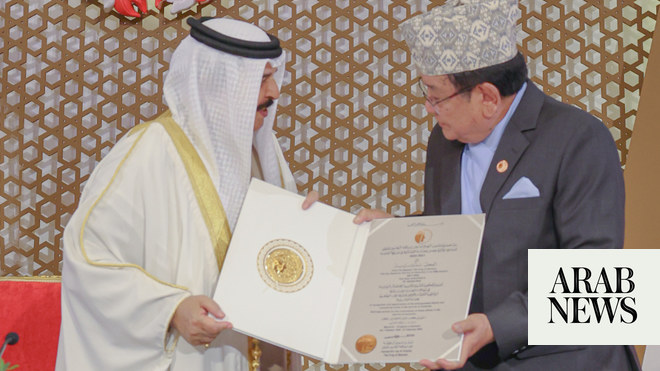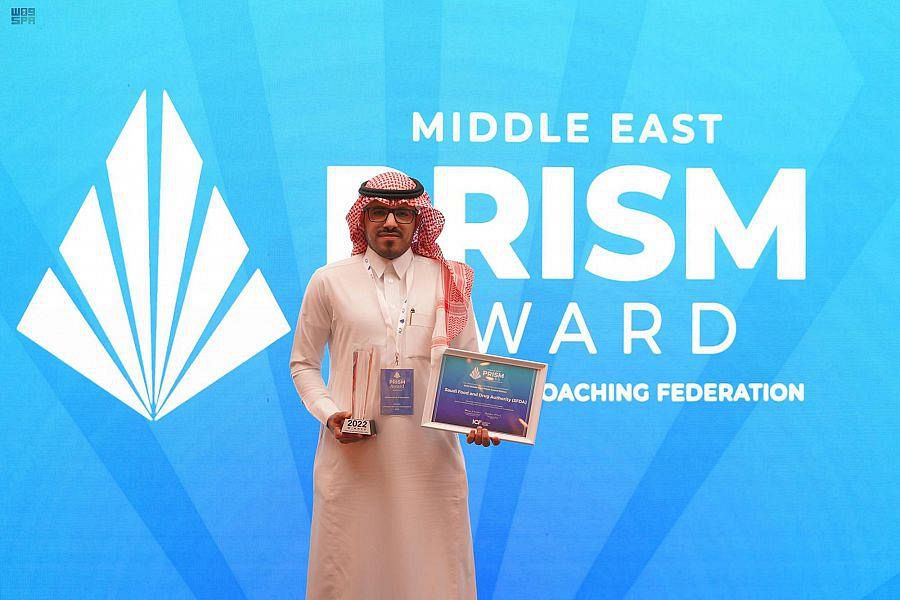
Ophthalmologist Sanduk Ruit has helped save 120,000 people from blindness with his innovative, inexpensive and speedy treatment for cataracts
The $1 million award will go to his foundation, which manufactures more than 350,000 implantable lenses annually and distributes them at a cost of just $3 each
MANAMA: Dr. Sanduk Ruit, a Nepali ophthalmologist, received the $1 million Isa Award for Services to Humanity from Bahrain’s King Hamad bin Isa Al-Khalifa during a ceremony at Isa Cultural Center at Al-Fateh Compound in Manama on Tuesday. He is the award’s fifth laureate.
Trustees considered 139 people from all over the world, with expertise in education, health, community service, the alleviation of poverty, and other humanitarian-related fields, for the 2021-2022 award, before selecting five candidates for the shortlist.
Ali Abdullah Khalifa, secretary-general of the award scheme, said: “Dr. Sanduk Ruit gained international acclaim for developing a novel approach to treating cataracts and succeeded in creating a new implantable lens that could be produced at a much lower price than its counterparts, allowing him to complete cataract surgery in significantly less time.
“Cataracts can be surgically removed through tiny incisions in as little as five minutes and replaced with an inexpensive artificial lens.”
Over the course of 30 years, Ruit has performed more than 50,000 eye surgeries in Asia, Africa and his home country, aided by a team of 30 specialists. His Tilganga Institute of Ophthalmology, a non-profit and independent organization, operates two hospitals, 16 field centers, and mobile clinics that have assisted thousands of patients in countries such as Bhutan, Thailand, Pakistan, Ethiopia, China, India and North Korea.
The $1 million award will go to Ruit’s foundation, which manufactures more than 350,000 lenses annually in a local factory, distributes them at a cost of $3 each and has helped to save nearly 120,000 people from blindness.
Established in February 2009 by the king of Bahrain, the Isa Award is presented every two years to individuals or organizations chosen by an expert panel.
“The Board of Trustees worked tirelessly with the award secretariat and the arbitration committee, which was made up of international personalities with expertise and scholarly, legal and academic competence in research and investigation, to determine who would receive the award based on their humanitarian work,” said Shaikh Mohammed bin Mubarak Al-Khalifa, a special representative of the king and chairman of the award trustees.
Jan Paulsson, the head of the jury committee, told Arab News: “(Reducing the list) from the 139 (candidates), who have been examined and assessed and described by the staff of the award, is very time-consuming, as you can imagine.
“We have books and folders with lots of information and because the nominating committee comes from different countries, we have different opinions and we express ourselves, so it takes time.”
Nominations are based on the work of a candidate in any field, globally, related to humanitarian assistance. To be eligible, candidates must not be affiliated to any governmental or political entity and must provide services that help the widest possible community.









